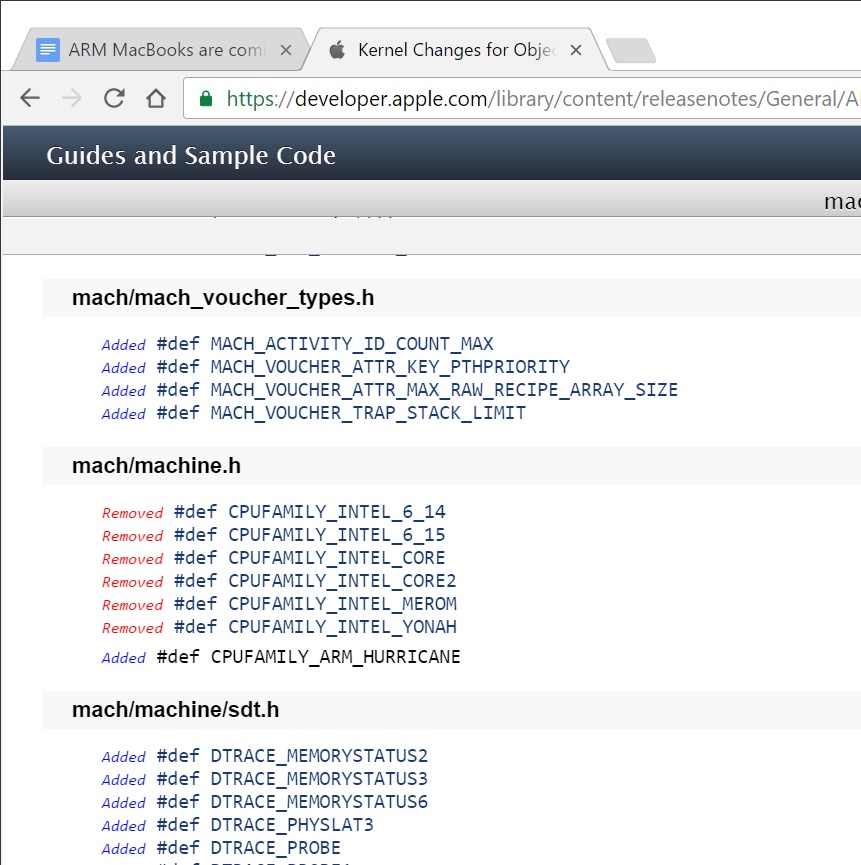ARM MacBooks are coming according to macOS Sierra latest kernel update

Apple has officially included ARM support into macOS Sierra’s kernel, as it transpires from the following page deep within Apple’s developer libraries: https://developer.apple.com/library/content/releasenotes/General/APIDiffsMacOS10_12/Objective-C/Kernel.html
The document includes a reference to an upcoming family of ARM chips named Hurricane, which is an indication that Apple’s roadmap for an ARM MacBook may be further along than previously thought.
While there is little information available about the new chip, there is data suggesting that the chip may be closely related to the A-Series chips powering iOS devices like the Apple iPad Pro, and perhaps even a more powerful iteration of the A10 Fusion chip powering the iPhone 7, which has been reported as being even faster than a 2013 MacBook Pro, in single-thread performance.
Although quite impressive, there are also other factors at play that need to be considered when discussing processing speed of ARM versus desktop class processors. With that said, Apple’s endorsement of ARM support in macOS Sierra is a significant step towards a possible entry-level MacBook family aimed at taking on Google Chromebooks, and other ultraportables, on their own turf.
Rumors of an ARM MacBook are not new, but this is the first time that Apple includes code references into the kernel, and, while taking into consideration other rumors suggesting the possibility of cellular connectivity to be implemented in future MacBooks, it’s not hard to picture where Apple may be headed.
A low-powered ARM MacBook capable of connecting to cellular networks for Internet access, may also be the tip of the iceberg, when looking at existing features built into macOS sierra, such as the ability to unlock a MacBook using Apple Watch, and a completely new Apple Filesystem built around file encryption. Should Apple release such a device, at an attainable price point, perhaps as high as an iPad Pro, Apple could end up dominating the ultraportable market, at least as far as non-touch devices, which means anything except Microsoft Surface devices, and other tablets and 2-in-1’s running windows 10.
Some have dared speculate that future versions of the 12 inch MacBook Retina may one day feature an ARM processor, which would drastically improve the device’s battery efficiency, at the cost of slower processing.
The question is: will Apple really tread into low-cost ultraportable territory? There are a few reasons for and more than a few against this notion.
On one hand, Apple might release an budget MacBook powered by an ARM CPU to compete with laptops and netbooks within the same class as Chromebooks, should these devices prove to be a real threat at retail level. Students on a budget often revert to cheaper alternatives, unless their classes have specific hardware requirements, and this is where Apple may need to look at the numbers with careful consideration, should the production of a lower class of MacBook devices is even necessary.
One argument against an ARM powered Apple MacBook is simply that such device would ride dangerously close to the line between the MacBook and the iPad Pro, a device that is considered a legit replacement of many ultraportables on the market.
Ready to shop?
If you are looking for the perfect MacBook, PortableOne has you covered with a great selection of Apple MacBooks, as well as expert support.